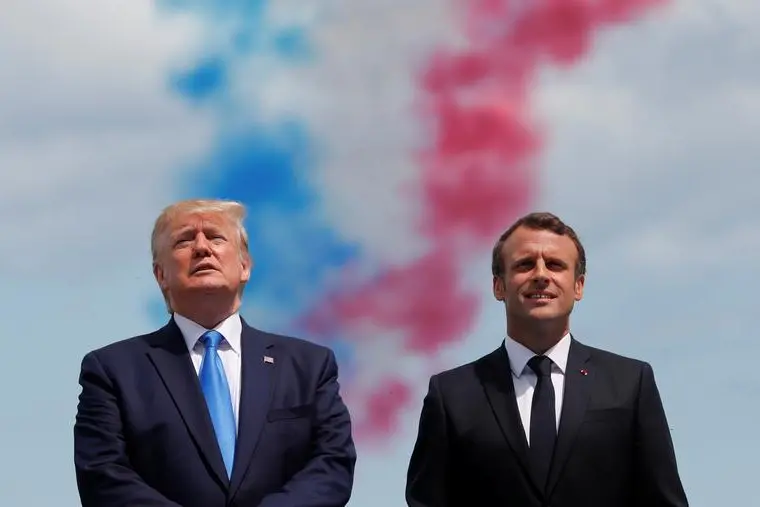PHOTO
LONDON - Donald Trump has landed a pre-emptive blow in a brewing fight over how to tax technology giants like Facebook. The U.S. president on Wednesday initiated a probe into whether France’s digital levy unfairly targets American companies. The move gives him more leverage in talks about how to revamp international corporate tax but also means there’s more riding on the success of those discussions.
France’s plan to impose a 3% tax on the worldwide revenue of digital groups that generate at least 750 million euros of sales globally and 25 million euros in France aims to fix what Finance Minister Bruno Le Maire calls a “fiscal injustice”: tech giants paying little tax in large European countries. Trump and other U.S. politicians, including Democrats, suspect the levy, which was approved on Thursday by the French Senate, is a cynical raid on the likes of Google parent Alphabet.
The U.S. probe means there’s a risk of U.S. tariffs on French goods. Yet shares of companies like LVMH, Pernod Ricard, Kering and Airbus, whose products are imported to the United States, were little changed on Thursday. That’s probably because investors view the move as classic Trumpian posturing.
The problem is, both sides have a point and may not want to give ground. Le Maire’s tax would raise about 500 million euros from 30 companies. Only one is French – advertising-technology group Criteo – and most of the rest are American, such as Alphabet, Amazon, Facebook and Apple. To the United States, that looks like discrimination, not least because European competition regulators have targeted many of the same companies with multibillion-dollar antitrust fines.
At the same time, Le Maire is right to want a level playing field. International digital companies pay corporate tax in Europe at less than half the average rate of non-digital companies, according to the European Commission. And while France was in Trump’s sights on Wednesday, Britain, Austria, Spain and Italy have moved forward with digital taxes of their own.
These European governments are effectively using national digital taxes as a way to press their case at the Organisation for Economic Co-operation and Development, where plans are afoot to rewrite global tax rules so that digital companies pay more tax in countries where users are based, rather than in low-tax countries like Ireland. Trump has just produced a bargaining chip of his own. But with both sides now brandishing threats, there’s a risk of a harmful spiral if the OECD talks break down.
On Twitter https://twitter.com/liamwardproud
CONTEXT NEWS
- The U.S. trade representative on July 10 launched an investigation into France’s proposed digital tax on companies that provide certain online services to, or aimed at, French users. Amazon, Apple and Facebook are among the firms that would be affected.
- The proposed tax, of 3% of total annual revenue, would apply to companies that generate revenue of at least 750 million euros globally and 25 million euros in France from such services.
- “The United States is very concerned that the digital services tax … unfairly targets American companies,” U.S. Trade Representative Robert Lighthizer said in a statement on July 10.
- The U.S. probe could lead to tariffs or other penalties. The investigation falls under Section 301 of the U.S. Trade Act of 1974, the same provision that was used to impose tariffs on China.
- For previous columns by the author, Reuters customers can click on PROUD/
(Editing by Swaha Pattanaik and Bob Cervi. Additional reporting by Gina Chon in San Francisco. ) ((liam.proud@thomsonreuters.com; Reuters Messaging: liam.ward-proud.thomsonreuters.com@reuters.net))





















